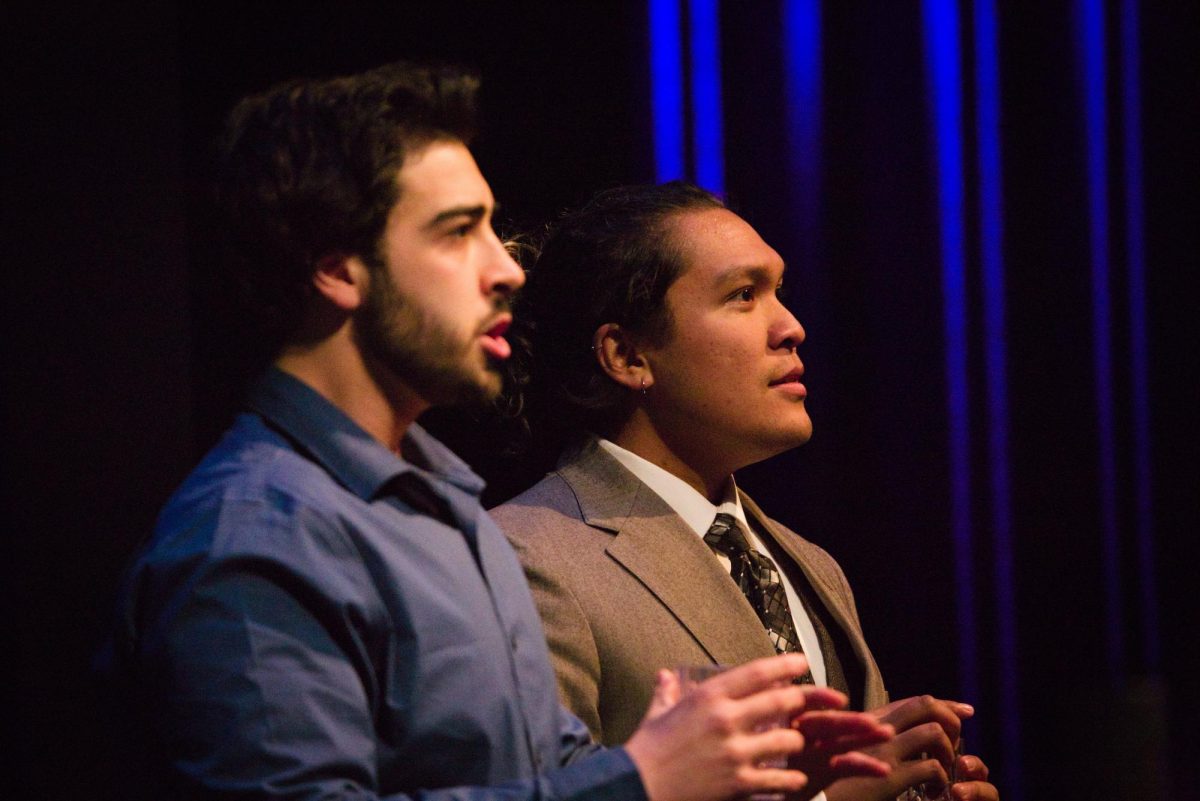By ALYSSA FOLAND, staff reporter
York University once invited a police officer to speak about crime prevention. The officer told women if they stopped dressing like sluts, they wouldn’t be victimized. Thus the SlutWalk was born, blossoming into a countrywide movement to stop slut shaming and victim blaming.
“My clothes are not my consent,” said Casy Collins, psychology major. “I’m allowed to wear whatever I want and that doesn’t give you the right to assault me.”
Collins, who is the president of the Feminist Club at Central Washington University, is helping to organize and lead the march on May 17. The march will start at the SURC patio and continue on to the Hal Holmes Center, where they will then begin the Take Back the Night rally. She said they have over 55 volunteers, both men and women.
“I would like people to learn a little bit more about the cause and maybe see that it’s not just women who are involved in this,” Brennan Weiding, theater major, said. “Everybody can take a part in this, everybody can be victimized and everybody can be part of the solution.”
Weiding is a participant in this year’s SlutWalk, and is very excited about it. He said people should come because it’s something fun to do and it supports a great cause. He believes the name itself makes the march a worthy event.
“I just love that it’s so blatant. It’s just in your face,” Weiding said. “There’s no way to create a second meaning from that. It’s literally SlutWalk.”
Sacheen Mobley, assistant professor of communications, believes this movement allows for feminism to assert itself. She said the SlutWalk allows people to embrace the things that are used against them and allow themselves to not be defined by them. The word “slut” is used against women to shame them and it makes them believe there’s a problem with wearing heels, a short skirt or a tight shirt.
“We have to fight against this belief that there is such a thing called a ‘slut.’ There is no such thing,” Mobley said. “There are women who are sexual creatures and they should be allowed to express that in ways that are appropriate for them and not be shamed by it.”
Pamela McMullin-Messier, assistant professor of sociology, is the faculty mentor for the feminist club. She said anytime you hear the word “slut,” it has a negative feeling behind it, and empowerment, along with taking back the term, is really what the walk represents.
“We call feminist the ‘F’ word and we really kind of need to move beyond that,” Messier said.
Collins wants people to gain awareness about the issue, and to stop telling women that it’s their fault. She said many people put the responsibility in the wrong place. Instead of teaching people how to not get raped, it should be about putting the responsibility back on the assaulters.
“Slut-shaming and victim-blaming affects everybody. It teaches our girls that sex is wrong and bad and if you have it then you’re wrong and bad,” Collins said. “It teaches men that women are just objects to be played with and it really is just demeaning toward women, and it also takes responsibility away from the rapists.”
Mobley said she wants people to express their ideas for how to get the message out in different ways that are comfortable for different people. She said if the word offends you then you should find a new way to find your voice. Mobley believes the SlutWalk is in-your-face activism. It’s a way to call attention to a really big problem.
“It’s never any woman’s fault if she’s the victim of sexual assault, regardless of how high her heels are or how low her shirt is,” Mobley said. “And that’s what this is all about.”




